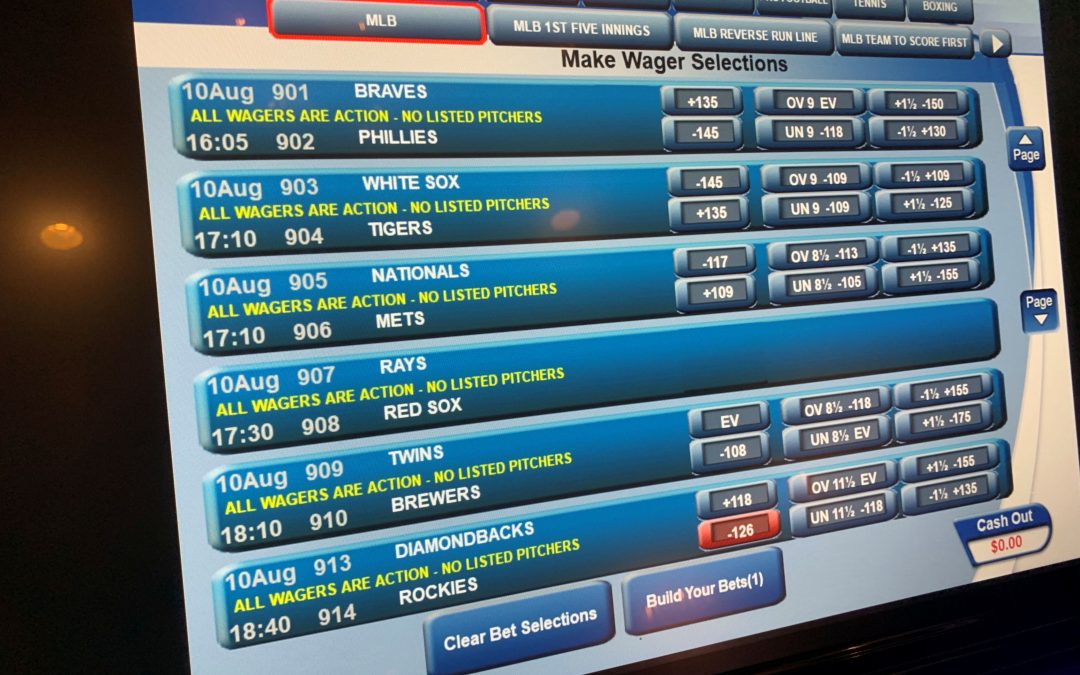Colorado voters may be asked to let more money flow to water projects by allowing the state to keep all of the sports betting tax revenue it collects, if a measure referring the issue to the November ballot is approved by lawmakers.
House Bill 1436 has bipartisan support, with House Speaker Julie McCluskie, D-Dillon, and Rep. Marc Catlin, R-Montrose, serving as the measure’s main sponsors in the House, and Sen. Dylan Roberts, D-Frisco, and Sen. Cleave Simpson, R-Alamosa, leading sponsorship in the Senate.
The sports betting program was initially approved by voters in 2019, passing with just over 51% of the vote. The measure collects a 10% tax on the proceeds of licensed sports betting. Some of the money is used to cover the cost of regulating betting and the rest, up to $29 million total, is funneled toward water projects. In the event tax collections exceed $29 million, the legislature decides how to refund the money under the Taxpayer’s Bill of Rights.
That’s where House Bill 1436 comes in.
If House Bill 1436 passes but voters reject the ballot measure, the bill directs the state to refund any sports betting tax revenue collected in excess of $29 million to sports betting operators. The provision is aimed at persuading voters to cast a “yes” vote on the question.
While the original sports betting ballot measure received tepid support, the tax question, if it makes the ballot, may win broader support due to ongoing voter concerns about water conservation and protection and the high-profile crisis on the drought-stressed Colorado River, veteran pollster and political analyst Floyd Ciruli said.
“I have not seen any polls that negate what we knew strongly back then, that water conservation and water protection are environmental issues that Coloradans care strongly about,” he said.
Since 2021, nearly $43.1 million in sports betting tax revenue has been transferred to water projects, according to the Colorado Department of Revenue, with annual cash for water projects nearly tripling during that time, rising from $7.9 million at the end of the 2021 fiscal year, to $23.7 million in 2023.
Brian Jackson, director of Western water for the Environmental Defense Fund, helped spearhead the 2019 campaign backing the initial ballot measure. He and a similar coalition of environmental groups are forming to campaign for this latest ballot measure as well, if lawmakers ultimately refer it to the ballot.
“Frankly, we never thought we would hit that cap,” Jackson said. “But revenues and profits have snowballed.”
State forecasts indicate the cap is likely to be exceeded in the next year or two, Jackson said, reaching $31 million this fiscal year, which ends June 30, and $35 million in the next.
Jackson said early polling indicates strong support for a new ballot initiative among Democratic and Republican voters statewide, but he said those who back removing the cap plan to campaign heavily even with the early support, in part because this November’s ballot is expected to be crowded with a number of questions on topics like property taxes and abortion access.
“We are going to run a campaign because this is a great opportunity to invest in our state and to widen the message about conserving and protecting Colorado’s water,” Jackson said.
Voters approved Proposition II, a similar tax-surplus measure related to tobacco taxes for preschool funding, in 2023.
Little formal opposition appears to have formed as of now, although at least one tribal community, the Ute Mountain Ute in Towaoc, has been engaged in a three-year battle with the state over the sports betting program. Among the issues is whether, as a sovereign nation, the tribe should be required to pay the 10% tax on profits, according to Peter Ortego, general counsel for the Ute Mountain Ute.
“We believe federal law makes it clear that we do not have to pay that tax,” Ortego said. “But we are very far apart from the state on that issue.” The Ute Mountain Ute have not taken a position on House Bill 1436.
The Colorado Department of Revenue did not respond to a request for comment about the dispute with the tribes over sports betting.
The gaming industry spent millions in 2019 in support of the original sports betting ballot measure. Whether it will support or oppose House Bill 1436 isn’t clear. The Colorado Gaming Association did not respond to a request for comment.
The measure has passed the House and is now in the Senate. The 2024 legislative session ends May 8.



 Print
Print